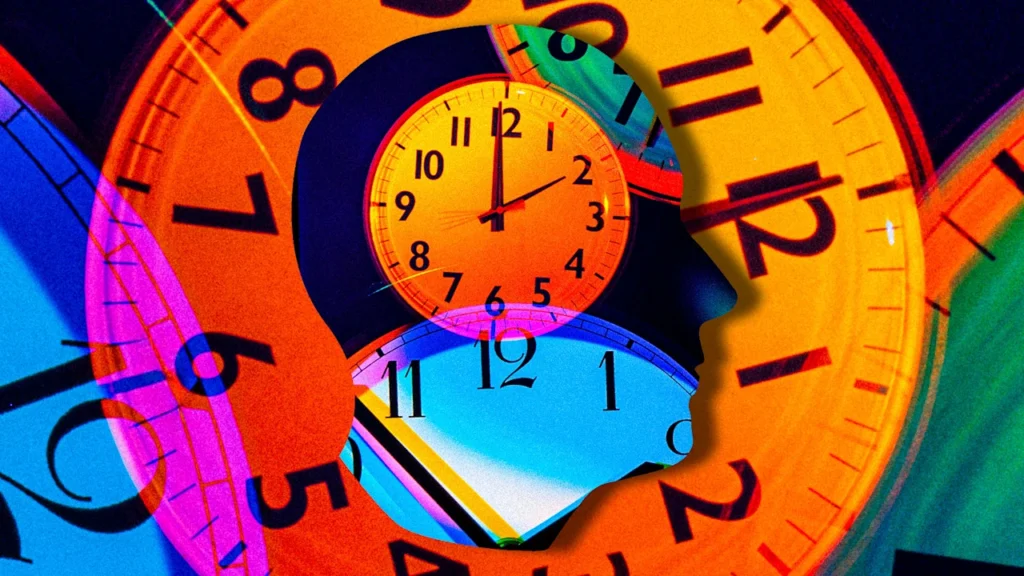
Yes, it’s that time of year again, when most of the U.S. “gains” an extra hour of sleep as we “fall back” from daylight savings to shorter days, colder nights, and standard time.
This Sunday, November 2, at 2 a.m local time, we will turn back our clocks to 1 a.m—and that will last until March 8, 2026 (when we will once again usher in daylight saving time).
Although getting an extra hour of sleep sounds like a win, here’s what really happens to your health when the clocks change.
Darker nights disrupt the body’s natural clock
Darker evenings actually disrupt our body’s natural circadian rhythm, our mood, and our metabolism, according to Dr. Zaid Fadul, CEO of Bespoke Concierge MD.
“Light is your body’s main ‘time-giver’ that sets your internal clock,” said Fadul, whose practice specializes in integrative medicine with a focus on sleep. “When evenings get darker sooner, your brain releases melatonin earlier, shifting your sleep schedule and throwing off your rhythm.”
He added, “This disruption affects hormones like cortisol and insulin, lowering insulin sensitivity and increasing stress while also impacting serotonin and dopamine—the chemicals that control your mood and motivation.”
The one-hour clock change also creates “social jet lag,” disrupting your body’s schedule, especially if you’re naturally a night owl, Fadul explained, noting, “Your sleep quality tanks—particularly the deep REM sleep your brain needs—leaving you foggy, tired, and less alert during the day.”
While getting extra sleep doesn’t hurt, the issue is most prevalent in the spring, when people lose an hour of sleep. And that can have other impacts on health.
How the time change impacts sleep and health
Research shows a spike in heart attacks and cardiovascular issues after the switch to daylight saving time in the spring. Moving the clock forward or backward also alters the timing of when heart attacks occur in the week following these time changes, according to research presented at the American College of Cardiology’s 2014 Annual Scientific Session.
The time change also affects night-shift workers more—which include a substantial number of the population, such as nurses, police, firefighters, and doctors.
The best way to adjust your internal clock
Here are Fadul’s recommendations for readjusting your internal clock after the time change.
Morning light: Get outside for 10 to 20 minutes of natural sunlight within 30 to 60 minutes of waking up (no sunglasses, unless you really need them). Exposure to morning light is the fastest way to reset your clock.
Evening light hygiene: Dim your lights two to three hours before bed and ditch the overhead lighting. Keep screens on warm mode with low brightness—or better yet, put them away.
Consistent wake time: Wake up at the same time every day, even if you slept poorly. If you’re dragging, take a quick, 20- to 30-minute nap before 3 p.m. to recharge without messing up your nighttime sleep.
Meal timing: Load up on calories and protein earlier in the day, and finish dinner at least three hours before bed. This supports your insulin rhythm and helps your body know when it’s time to wind down.
Caffeine and alcohol: Cut off caffeine about eight hours before bedtime. Avoid alcohol during the adjustment window—it might help you feel drowsy, but it wrecks your sleep quality.
Movement timing: Take morning or lunchtime walks to get natural light and movement together. Skip intense late-night workouts for the first two to three days after the time changes. Workouts might fire you up when you need to be winding down.
Temperature cues: Keep your bedroom cool, around 64 to 66 degrees Fahrenheit (18 to 19 degrees Celsius). Take a warm shower one to two hours before bed—the cooling effect afterward signals your body that it’s time to sleep.

